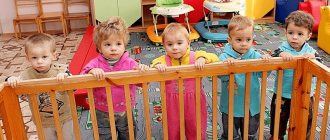Every little person should have loving parents who support them in all situations and accompany them through their first steps and mistakes. But life has a different opinion on this. Often everything does not go according to plan, malfunctions, and unnatural situations are created, as a result of which children are left face to face with pressing problems.
In such unusual cases, children come under the watchful attention of organizations that control various spheres of society and are transferred to favorable conditions. Sometimes social guardianship is established over such minors.
Over whom it is installed
Data about children who find themselves in difficult life situations are received by social care and social protection from reliable sources:
- law enforcement;
- from schools and kindergartens;
- from other informants.
At the same time, a minor has the opportunity to personally contact the guardianship authorities in difficult situations. Here he will definitely receive the necessary advice on any issues, timely help and support.
After checking the actual living conditions, a housing inspection report is drawn up. At the same time, recommendations are made on possible options for resolving the situation.
The priority direction in this case is the suspension of parental care, followed by the execution of an act of separation from children and transfer to a shelter. While the children live in the shelter, active work is underway to find a suitable candidate and the necessary documentation is being prepared.
The main reasons for establishing guardianship for children left without parental support are:
- the parents have various diseases that prevent them from living with their natural child;
- in cases where parents refuse to pick up their children from various social institutions;
- premature death of relatives or temporary incapacity;
- in cases where parents are limited or completely deprived of their rights in relation to the child;
- leaving for a long time without supervision and care.
Often, under such circumstances, children are assigned to live and be raised with a chosen family or sent to full state care in special institutions. Children retain legal rights to receive funds in the form of alimony, social benefits, and housing.
Authority
In accordance with the current text of Article 8 48-FZ, the powers of the state body for the protection of the rights of minors are as follows:
- Registration of persons in need of assistance;
- Petition to the judicial authorities to recognize the ward as legally competent or incompetent;
- Organization of guardianship;
- Providing written permission to conduct transactions and sign contracts with the participation of a child;
- Representing the interests of wards in court;
- Participation in the divorce proceedings of citizens, if one of the issues being resolved is the future residence of a minor child;
- Preparation of persons wishing to adopt an orphan;
- Monitoring the conditions in which wards live.
If employees of the guardianship authorities have suspicions about the quality of the child’s care in his family or guardians, they are authorized to go to the ward’s residence address in order to conduct an independent inspection. If living conditions are unsatisfactory, the authorized persons in question have the right to petition for the deprivation of parental rights of the child’s biological parents or the removal of the offspring from the foster family. The actual powers of the guardianship and trusteeship body are undeniable and approved by the legislation of the Russian Federation.
Who are social carers
Any capable citizen who has reached the age of majority, without various serious illnesses, has every right to become a guardian of one or more children and raise them. However, if a citizen was previously deprived of parental rights, he is deprived of this opportunity.
There is a certain list of diseases that prevent the establishment of guardianship. This category includes citizens recognized as incompetent due to a mental disorder, as well as with serious injuries resulting in disability.
Relatives and close acquaintances receive an undeniable advantage when arranging child care. Upon reaching the age of ten, the child goes to a new one only with his consent.
In rare cases, it is possible to transfer a minor into the custody of a candidate chosen by the blood parents. This often happens in cases of serious illness of the parents, an emergency need for a long absence, or during long business trips.
Guardian. Rights and obligations
The guardian fulfills all his obligations strictly within the framework of the agreement. He is a representative of his minor wards and deals with issues of protecting the rights and interests of the child. The guardian has every right to represent the interests of the ward, including in court, and enter into the necessary financial transactions.
Guardians or trustees must take care of the full provision of all needs, timely treatment, spiritual and moral development. The guardian chooses methods of upbringing based on his own views and preferences, taking into account the recommendations and advice of the guardianship authorities, as well as the opinion of the children. Responsibility for obtaining a complete education is also assigned to him. He can independently choose both educational institutions for training and the methods of education themselves.
The guardian, at his own discretion, regulates the order of communication with relatives and their relationship.
Responsibilities automatically end when the minor turns 14 years old. After this, social guardianship is established, which is valid until adulthood.
Termination of duties
Social guardianship and trusteeship of citizens under the age of majority are terminated in the following cases:
- premature death of a caregiver;
- return of children to their family of origin;
- moving to live, study and educate in specialized children's institutions;
- at the personal request of the trustee or guardian.
Functions of guardianship and trusteeship authorities
The activities of guardianship and trusteeship bodies are regulated by the Federal Law “On Guardianship and Trusteeship” N 48-FZ. The normative act in question was adopted by the State Duma 11, approved by the Federation Council 16 and signed by the President of the Russian Federation on April 24, 2008.
According to the law under consideration, the organizations under discussion represent the executive power of each specific subject of Russia, responsible for the well-being of minor citizens. But what does the guardianship and trusteeship authority do? Who does their activity cover?
In accordance with the legislation of the Russian Federation, the functions of the guardianship and trusteeship authorities are as follows:
- Identification of social orphanhood;
- Transfer of offspring to a foster family;
- Protection of the rights and individual interests of orphans;
- Providing necessary shelter and food for minor children left without adult care;
- Protecting the interests of minors in court proceedings.
Accordingly, guardianship and trusteeship authorities provide legal protection to children who find themselves in a difficult situation due to the negligence of adults.
How to apply for social guardianship
If, after weighing all the pros and cons, you decide on social guardianship or trusteeship, then completing the documents will not be difficult and will not take much time.
Where to go
Documents for social guardianship are submitted to the guardianship authorities at the guardian’s permanent place of residence, or to a single state window. Our law prohibits mediation to resolve these issues, so you will have to collect documents and submit them to the necessary authorities yourself.
Required documents
In addition to the application for the possibility of establishing guardianship over orphans and children left without parental care, the following documents are attached:
- passport of the possible guardian,
- a certificate of receipt of income from the place of work for the last year or another document proving the presence of permanent income;
- documents for housing;
- a certificate confirming that the proposed guardian has no criminal record;
- conclusion of a medical commission on health status;
- written permission from each adult family member;
- certificate of completion of foster parent training;
- autobiography of a candidate for guardianship.
Responsibilities
The main responsibilities of the guardianship and trusteeship authorities in relation to children are:
- Carrying out actions by PLO employees exclusively in accordance with the regulations of this law;
- Determining the rights and well-being of minors as a priority basis for activities;
- Monitoring the standard of living of minors from their official guardians;
- Providing temporary shelter for young orphans, as well as providing medical and psychological assistance, and providing rehabilitation services;
- Taking into account the child’s opinion if he is over 14 years old.
If the ward changes his permanent place of residence , the guardianship and trusteeship organization is obliged to:
- Transfer powers of guardianship to the regional guardianship authority;
- Send a corresponding petition to the regional guardianship organization within 3 days from the moment the minor citizen moves;
- Transfer the personal file of the ward to the appropriate organization.
The duties of the guardianship authorities also include monitoring the complete safety of the property of the wards until they reach the age of 18 years.
Responsibilities of the authority in relation to the property of wards
A separate point can be made regarding the responsibilities of the guardianship authorities in relation to the property of the ward . Thus, the sale of an apartment, one of the owners of which is a minor child, can only be carried out with the written consent of the organization for the protection of the legal rights of minors. At the same time, authorized employees are obliged to demand from the legal guardians of the child documentary evidence that an equivalent property is being purchased in exchange for the housing being sold. Otherwise, employees of the guardianship authority are obliged to refuse the guardian’s request.
The federal organization in question must exercise control over the inheritance of a minor citizen and how, until the child reaches the age of 18, this property is managed by his legal guardian. If violations or unauthorized waste of the child’s property are detected, the guardianship authorities are obliged to intervene.
Family disputes: how can guardianship authorities help?
First of all, the task of the guardianship and trusteeship authority is to protect the legal rights and interests of a minor child. It is the child, not the parents, not other relatives. And the understanding of the interests of the child among the specialists of the guardianship authority does not always coincide with the opinion of the parents or other relatives.
What can the guardianship authority do in response to your request? There is no single and complete list of issues within the competence of the guardianship and trusteeship authorities. And not only for an ordinary person, but also for a specialist, it is sometimes difficult to understand whether there is a reason to contact the guardianship authority and whether the guardianship authority is obliged to take measures on the merits of the submitted appeal. I have repeatedly encountered a situation where even experienced lawyers who do not constantly deal with family disputes completely mistakenly imagine the functions of the guardianship and trusteeship authority. In various situations, the legislator gives the guardianship authorities completely different powers, ranging from a simple preventive conversation and ending with the right to immediately remove the child. At the same time, the guardianship and trusteeship authority does not always have a legal mechanism for influencing the violator of the child’s interests.
“Understand and forgive” Relatives are very fond of writing statements about the immoral behavior of mothers, about violation of the child’s wakefulness and rest schedule by one of the parents, and even about the constant smoking of the parents (parent) in the apartment in front of the child. In all such cases, the guardianship and trusteeship authority itself does not have a legal mechanism to influence the “bad” parent. However, since the law determines that “guardianship and trusteeship bodies are the executive authorities of the constituent entity of the Russian Federation” (Article 34 of the Civil Code of the Russian Federation), and there is no uniform requirement for how this very “body” should look in reality, then in many In the regions, in addition to specialist officials who directly perform the functions of the guardianship and trusteeship authority, various kinds of public commissions are created and exist, consisting, as a rule, of representatives of various services and departments, one way or another involved in working with minors.
It is these commissions that in practice consider, on behalf of the guardianship and trusteeship authority, those requests that require, first of all, a preventive conversation, recognition of the behavior of the “guilty” person as unacceptable and public censure, with a warning that more stringent sanctions will follow.
The decision of such a commission has no legal significance, but practice shows that, firstly, this decision is taken into account in the subsequent consideration of the behavior of the “bad” parent or relative by all other bodies, including the judiciary. And secondly, this really has a positive effect - about half of the people heard at meetings of such commissions draw conclusions and correct their behavior. But the other half of the citizens do not react to anything, and the story ends with the deprivation of parental rights.
From talk to action The legislation provides for categories of controversial and conflict situations, the consideration of which requires the participation of the guardianship and trusteeship authority.
The Family Code of the Russian Federation clearly defines cases when the guardianship and trusteeship authority must take part in resolving a controversial situation in the family. Thus, if there is a disagreement between parents regarding the upbringing and education of children, parents have the right to apply to the guardianship and trusteeship authority for resolution of these disagreements (Article 65 of the RF IC). If there is no agreement between the parents regarding the first and (or) last name of the child, the disagreements that arise are resolved by the guardianship and trusteeship authority (Article 58 of the RF IC). Grandparents, as well as other relatives, can protect their right to communicate with the child by contacting the guardianship and trusteeship authority, which has the right to oblige the parents (parent) not to interfere with such communication (Article 67 of the RF IC). I would like to note that the guardianship and trusteeship authority does not have a mechanism for enforcing its decisions. Therefore, if the second party to the conflict does not agree with the decision of the guardianship authority and does not comply with it (and in the overwhelming majority of cases this happens), then there is only one way left - going to court. Although the very fact of contacting the guardianship authority and the decision it made, as well as the fact of non-execution of this decision, are always then taken into account by the courts.
Let's meet in court There are categories of legal disputes in which the participation of the guardianship and trusteeship authority is mandatory. The Family Code directly stipulates that if one of the parents lives separately, and there are disagreements between the parents regarding the exercise by the separately living parent of his parental rights, the dispute is resolved by the court with the mandatory participation of the guardianship and trusteeship authority (Article 66 of the RF IC). The participation of the guardianship and trusteeship authority in court consideration of cases of deprivation of parental rights, restoration of parental rights, and restriction of parental rights is provided for. In these cases, the guardianship and trusteeship authority has the right to independently file a lawsuit in court. Moreover, in accordance with Article 77 of the RF IC, the guardianship and trusteeship authority has the right to immediately take away a child from parents or other persons, if there is an immediate threat to the life or health of a minor, and is obliged, within seven days after the removal, to apply to the court with a claim to deprive the parents of parental rights . In the event that the guardianship and trusteeship authority participates in the court proceedings, it is obliged to present to the court an oral or written (depending on the merits of the case) reasoned and legally justified conclusion on whether the stated claims should be satisfied.
Also, in many cases, specialists from the guardianship authority must go to the residential addresses of the plaintiff and the defendant and draw up inspection reports of living conditions, which reflect the general technical characteristics of the housing, the number and composition of residents, the living and sanitary condition of the residential premises. Then these acts are also provided by the guardianship authority to the court, which considers them as evidence in the case.
The law cannot provide for everything
In practice, in addition to the above situations, the guardianship and trusteeship authority is involved in a legal dispute in cases where the decision in such a case may affect the rights and interests of a minor child. These types of disputes include cases of eviction of a family from an occupied residential premises (for non-payment of utility bills, due to loss of ownership rights to this residential premises, in connection with the resettlement of a residential building recognized as unsafe, and so on), challenging a transaction where one one of the owners of the property is, or was, a minor (as a rule, these are real estate purchase and sale transactions), disputes about the procedure for using residential premises, and a number of others.
At the same time, there is no exhaustive list of such cases, and the court in each specific case decides the issue of involving the guardianship and trusteeship authority in the case, directly based on the circumstances of the case.
The Supreme Court of the Russian Federation, summarizing the very diverse regional judicial practice of resolving disputes related to the upbringing of children by courts, separately touched upon issues related to the participation of the guardianship and trusteeship authority in cases of this category (Review approved by the Presidium of the Supreme Court of the Russian Federation on July 20, 2011).
So what should we do?
In conclusion, I will give some advice. Contact the guardianship authorities and involve them in legal disputes! You don't lose anything by doing this. If the issue you raised is not within the competence of the guardianship authority, you will be informed about this. If the court comes to the conclusion that the guardianship authority should not participate in your legal dispute, the judge will inform you about this and explain why. But there is a high probability that the guardianship and trusteeship authorities will be able to help you resolve your life situation or tilt the scales of justice in your favor.
Required documents
The main list of papers may be changed at the request of the local administration. Basic documentation list:
• petition for intent to obtain guardianship;
• identification document;
• biographical information about the future guardian;
• information and characteristics from the place of employment;
• certificate of real estate availability;
• statement of the applicant’s financial account and income;
• documentary evidence of no criminal record;
• certificate of marriage and birth of your own child/children;
• approval for guardianship of all family members (in writing);
• a document from the guardianship authority regarding suitable living conditions.










